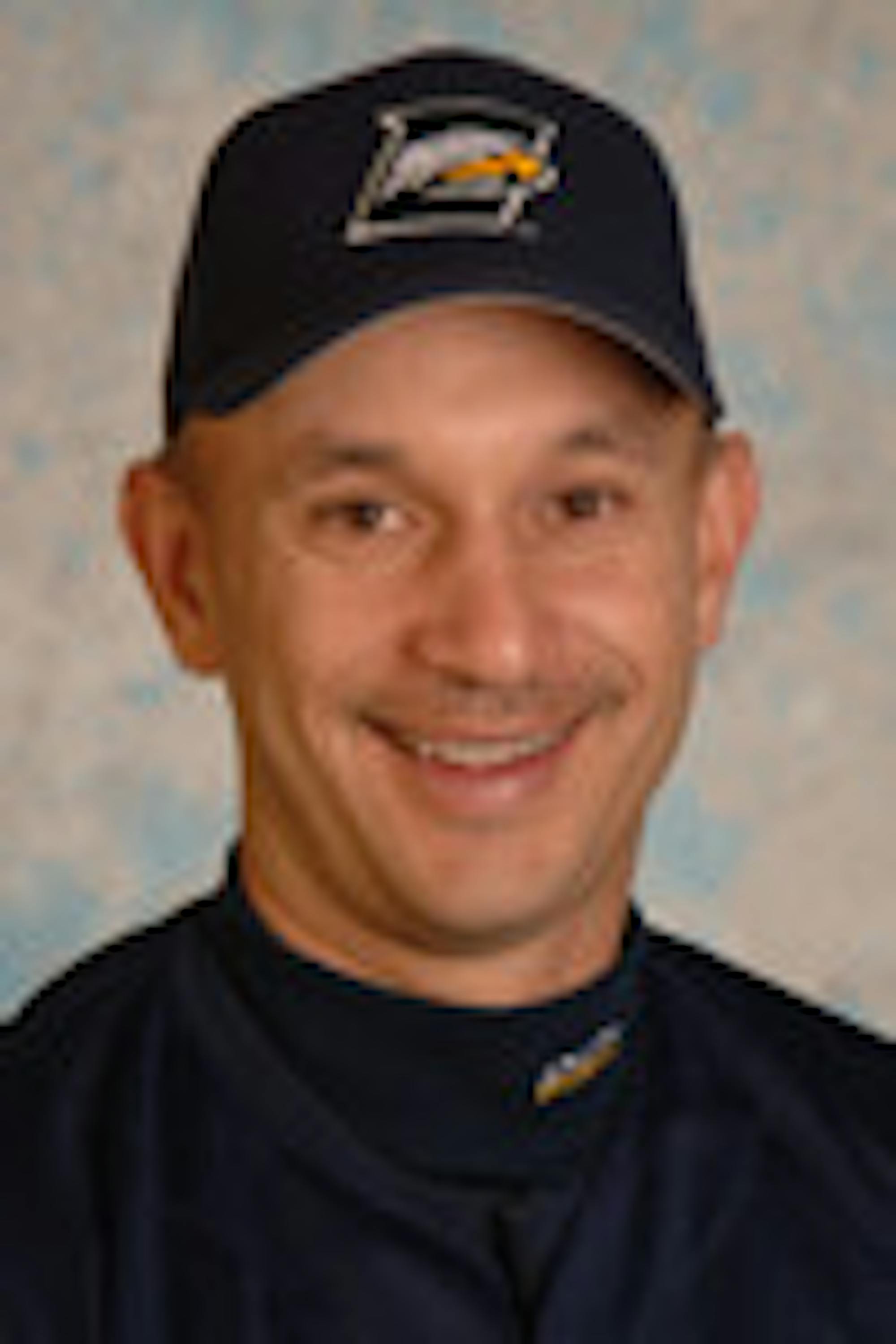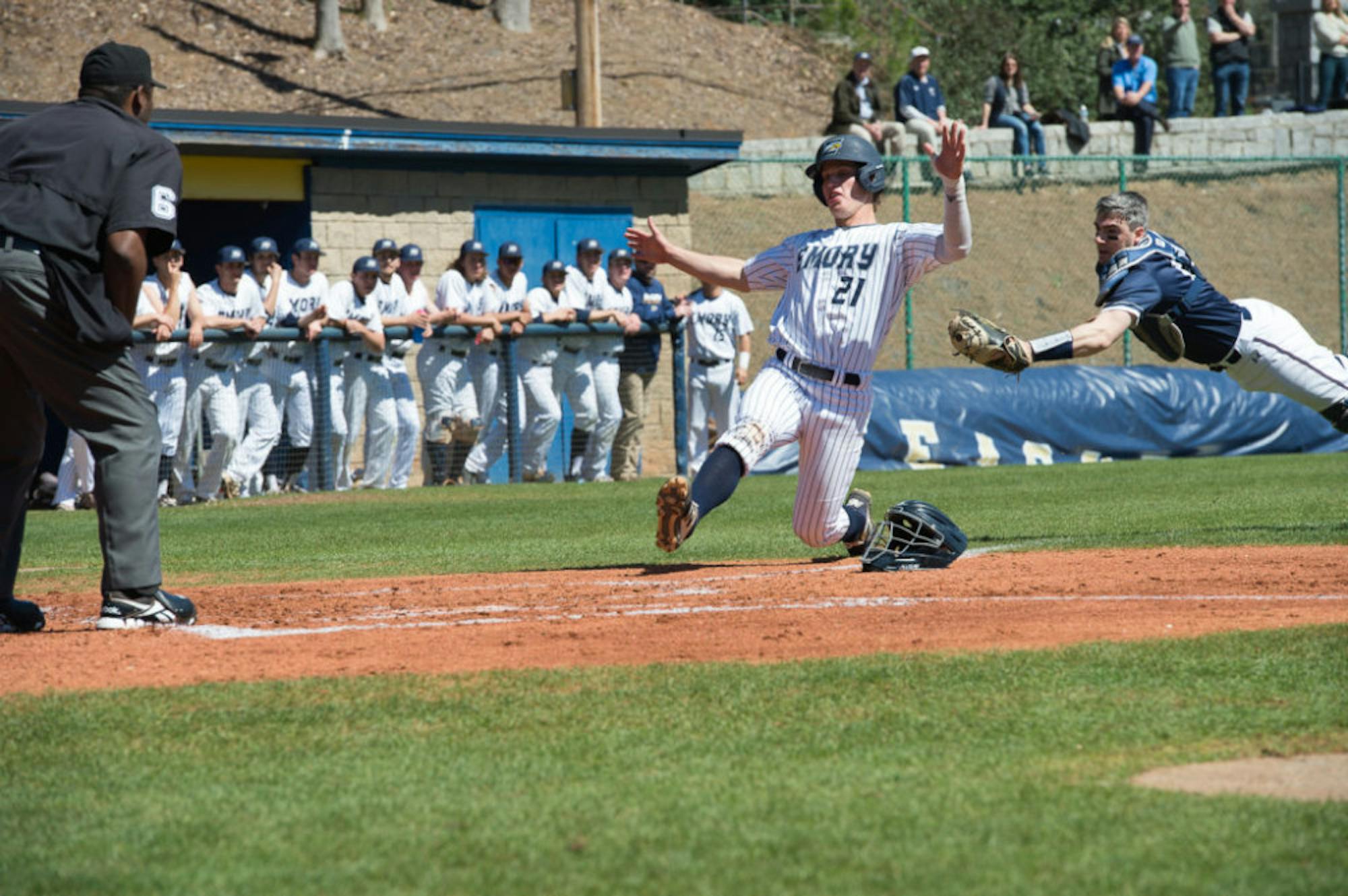After formal University Athletic Association competition was canceled and Emory announced that athletic practices were allowed in the spring, baseball head coach Mike Twardoski has devoted his time to understanding how to continue. It was nearly a year ago that his players were sent off the field at the beginning of the pandemic, and Twardoski has actively sought out ways to safely get his players back on the field ever since.
After being sent home a few weeks into their spring 2020 season, Emory baseball will begin their spring 2021 season with COVID-safe practices while still awaiting the status of local collegiate competition. The Wheel spoke with Twardoski about the upcoming season and the pressure he faces as a coach.
The transcript has been edited for clarity and length.
Sofia Himmel, The Emory Wheel: What do you think your biggest challenge has been so far as a coach?

Mike Twardoski: Well, I need to keep the morale up for our team. I mean, obviously we all know that there's COVID going on, and we all know that the most important things are that we stay safe and healthy. As a coach, I need to keep morale up. It's a point of understanding that other teams are starting, getting to practice on a field or having a full schedule of games. It's hard to keep the morale of a team that looks around the country and says we are in the very few that will not even get out to compete this year. So keeping the morale of the team going has been very, very hard.
You could see it on Zoom in the beginning that the attention of the kids wasn’t there. We have a Zoom [meeting on Jan. 25] to just go over expectations, but you can see the lack of morale. If I had to say one word, the morale of the team has been very, very low. My job as a coach, as a parent, as a mentor, is to really put things into perspective and help these kids get through these tough times.
TEW: Are there any specific ways you're trying to keep the players motivated?
MT: If we get on the practice field, that's going to be a start. But, that's only going to last so long because they're going to see other teams [around us]. Things like that really start to take a toll on their mental health. The problem is then going to be: are we going to be able to compete?
TEW: Have you heard any news about the status of competition?
MT: No. The only thing is that we're very behind. We have one of the best athletic directors around, and she's only been here for a couple of weeks. A lot of this stuff should have been done a long time ago — we just didn't have an athletic director. So it's very hard to get these things together, but for me, this is what I tell the guys: I'm going to go 110% to fight, to get us competing this year, and that's it. All they can do is win, and if the competition happens, we need to be ready. What could happen is if we compete, we put a horrible team on the field, so our job is to just get ready to compete this year. We can't worry about what happens on the other end. We just have to do what we can do.
TEW: Do you think the struggle with morale has impacted the momentum of the team?
MT: Yeah, absolutely. I'm at Planet Fitness right now, trying to get a little bit of a workout and just to keep going because at my age, if I don't stretch or workout, it's hard for me to compete with the kids. But, you know, I can just see how the kids are training the way that they should be knowing that there is a good possibility of not competing this year. I just know talking to some of these kids one-on-one on the phone how hard it is for a kid that's been competing their whole life. Our goal as coaches was to get these kids motivated to keep the tradition of Emory baseball going.
They really work hard in these off seasons, and they come back in great shape. And then to say, “Well, we might not be competing,” it's hard. We have seniors that might not compete for half of their careers in college. That's tough. That's tough for me to even think about because I took them away from other places, and quite honestly I took them away from other places that are competing. So I feel horrible that I had a little bit to do with them not competing.
TEW: What do you miss from pre-COVID times as a coach?
MT: I played competitive baseball my whole life; the only thing that I miss is competition and camaraderie. We have a really creative family, and that's what I think is the one thing that I miss is not being able to be with these kids. Not to be able to teach them [one-on-one] in the cages … when they succeed, [and] feeling so good about our interaction, too. It's the human interaction — I've always been a hugger. I've always been the guy that got really close with teams and stuff. The team has really shown that they do that, too. The toughest part about this is not being together during this because when tough times happen, family is a big part of the equation.
TEW: When are practices set to start?
MT: Well, as of now, they're starting to get tested, get their physicals and concussion testing. So the goal is around Feb. 1, if there's no slow down. I'm hoping that we stay the course. I'm hoping that nothing happens after that, and if we can do that, then we should be out in the field either the first or second of February which is very exciting.
My assistant [Bobby Perez] and I have taken hours upon hours to really try to keep contact tracing, keep kids in groups that are in the apartments, trying to keep them together, trying to keep it to where we could put 20 kids back [on the field]. There isn't a lot of close knit interaction, but they're still going to be able to be together and that's going to be a big part of it.
TEW: My thought is that you are outside for practices. Is that an advantage in this situation?
MT: Yeah. They're postponing the opening of the [Woodruff Physical Education Center] for a week. But, all spring sports are outdoors. So we're all able to start again. If things stay the course, we'll be able to start in about a week and that'll be great. It'd be incredible for the team to be together. Now, it will be in groups, but at least they'll have baseball gear on again.
TEW: How do you think the leadership has adapted on the team?
MT: Our upperclassmen have been absolutely incredible in keeping the team together. We started an alumni group that Zooms with the kids. We've got some business people to talk to them. Connor McGuiness, who [is] the [assistant] pitching coach of the [Los Angeles] Dodgers, came in and talked to some of our pitchers. In life, there's so many bumps in the road. We're very strong in our upperclassmen. Our seniors have absolutely been studs throughout this and have kept that family togetherness going. I think that when we are on the baseball field, I think it's going to be a great wave of excitement to say the least to get out there together.
We all know that it's just a bad time, We're just hoping that we're able to do something competitively because these kids mentally need something to keep them going throughout these times.






